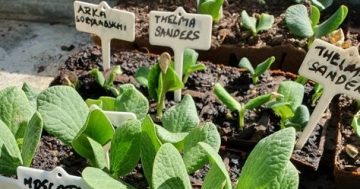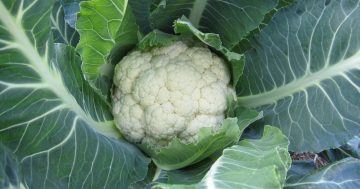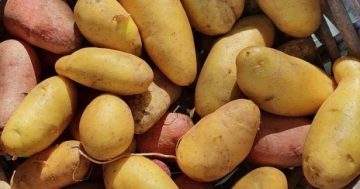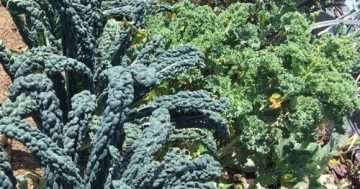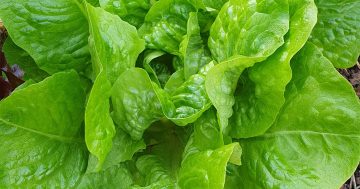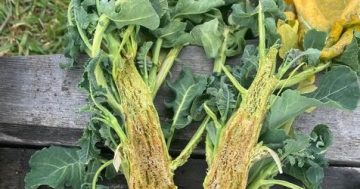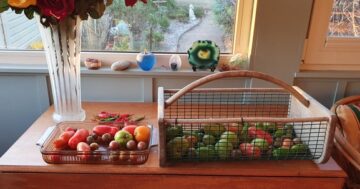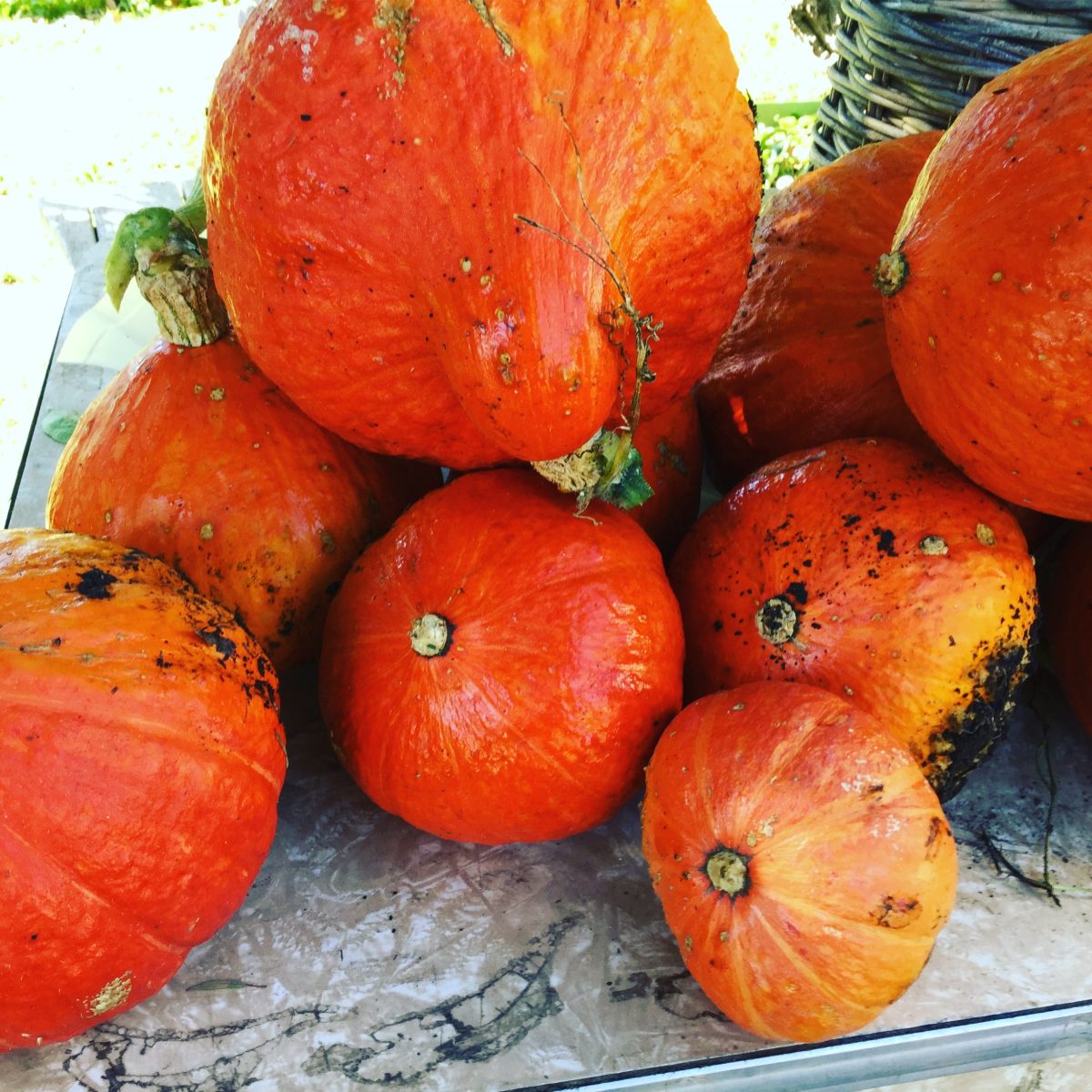
Will we finally get some decent pumpkins in the vegetable garden this summer? Photo: Supplied
Our transition to spring often has a good chance of frost along with lovely warm sunny days. The challenge is to not be fooled into thinking you can plant out your summer vegetable seedlings.
Most cold climate locations around the ACT and southern NSW are frosty until late spring. Wait until after the last frost before planting tomato, cucumber or eggplant among others.
Spring is the time to plan the summer garden and start propagating summer vegetables. If you’re raising seeds yourself you’ll benefit from lots of choice.
Soil temperatures are starting to warm but summer veggies need a soil temperature of about 18 degrees Celsius to germinate, so tomato seed and other summer vegetables require a warm sunny spot indoors. Don’t raise seeds outside yet unless you have a hot house or hot box.
A soil thermometer is helpful for keeping an eye on soil temperatures. Check the germination temperature on the packets and sow when the soil or growing medium reaches the desired temperature or close to it. You may need heat pads to help with propagation.
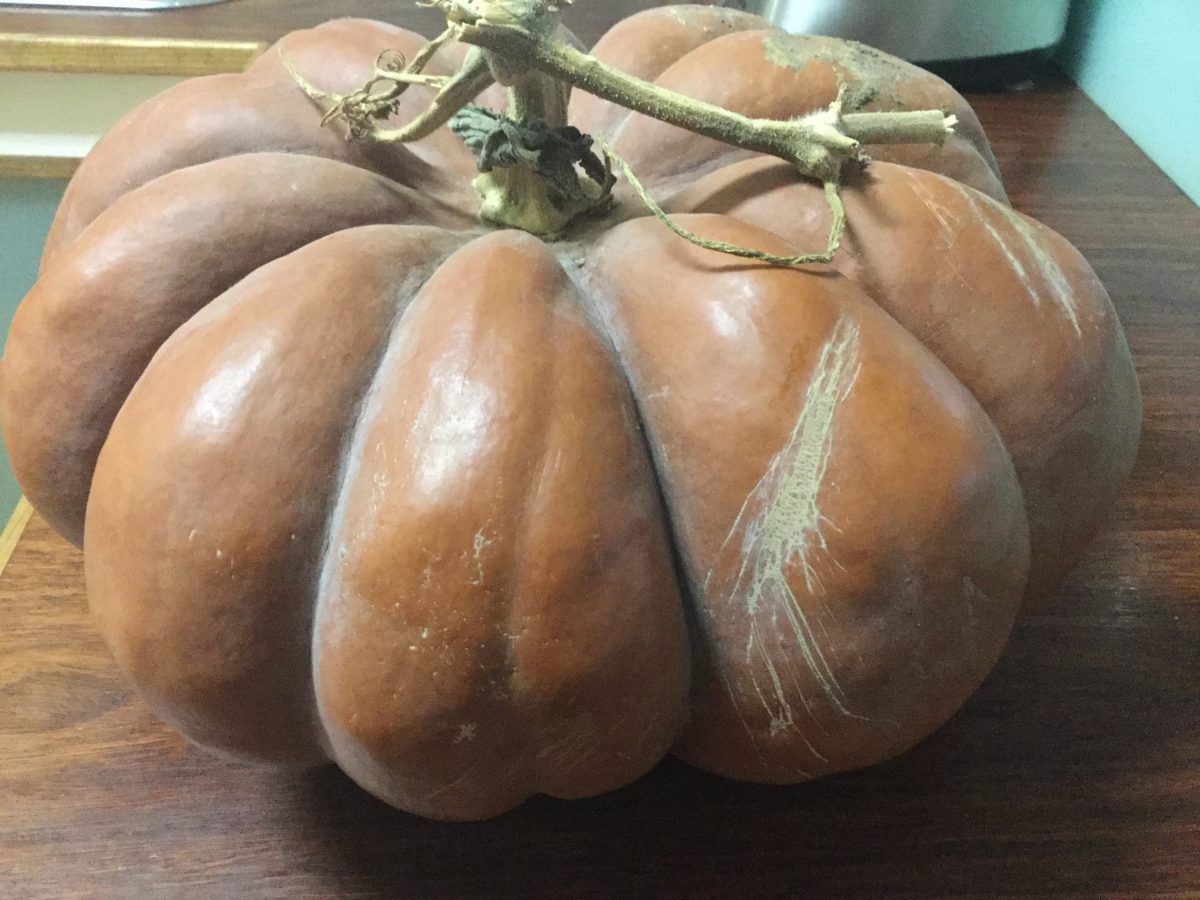
Heritage pumpkin varieties are worth seeking out for propagation. Photo: Supplied.
Sourcing pumpkin varieties is always fun. Read seed catalogues and make selections based on growing characteristics, ease of storage and flavour descriptions.
There are hundreds of varieties of pumpkin on the planet, but we can only ever buy four of them at the supermarket. So in the name of vegetable biodiversity it is worth always trying to grow something you can’t buy!
While pumpkins have been a bit hit and miss over the last few wet summers, this year has the promise of being much warmer and drier.
A few that have done very well are Blue Ballet, a small soft skinned type with a rich flavour; Australian Butter, a rare Australian heritage pumpkin with an exceptional baked flavour; Jumbo Pink Banana holds it shape when cooked, so great for casseroles; Buttercup has a wonderful sweet flavour and soft flesh, and is ideal for soup.
If you must have a butternut, try Wrinkled Butternut. It’s an Italian heritage variety with a weird violin shape and a superior flavour. Another Italian favourite, Chioggia, has bumpy skin, silky texture and a strong sweet flavour.
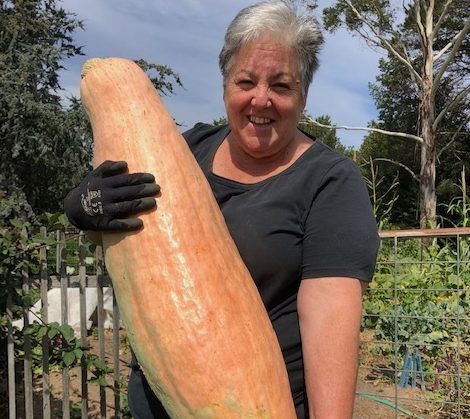
Heritage pumpkin varieties can grow to extraordinary shapes and sizes. Photo: Supplied.
The French heritage pumpkin, Masque De Provence, is interesting: it’s bronze with deep orange flesh, can be eaten raw when fresh and is exceptionally juicy, tasting like a melon. It dries out when cured and stored, developing more subtle complex flavours. The variety can grow very large, looking a bit like Cinderella’s carriage.
This month plant carrots, parsnips, Asian and European turnips; radishes (Asian daikon and European) and onions for a good supply of kitchen basics through summer. Also plant brassicas seedlings including cabbage red, green and savoy; broccoli, broccolini, sprouting broccoli, cauliflower white, mulberry and Romanesque; kale, kohl rabi, collards and Asian greens.
A spring planting of peas (sugar snap, shelling and snow) will do well and it may be worthwhile trying a September planting of broad beans. Other seedlings include beetroot, celeriac, chards, silverbeet, bulbing fennel, lettuces and herbs, although some protection from frosts is helpful.
Potatoes are frost tender: a late September or early October planting is best. While there are more varieties available now in supermarkets, it’s still a bit exciting to discover and grow uncommon varieties.
King Edward are fantastic for roasting, storing exceptionally well in the ground over winter and well into early spring.
Purple potatoes that hold their colour are great novelties at mealtime. Although purples can be a little dry, the addition of butter when eating solves the problem.
Sapphire and Purple Congo are both good flavoured varieties. Sapphires are versatile; mash, roast or make salads. Congos don’t roast well but make lively looking gnocchi.
Pink Fir Apple is not widely known but appreciated for its flavour and texture especially when steamed.
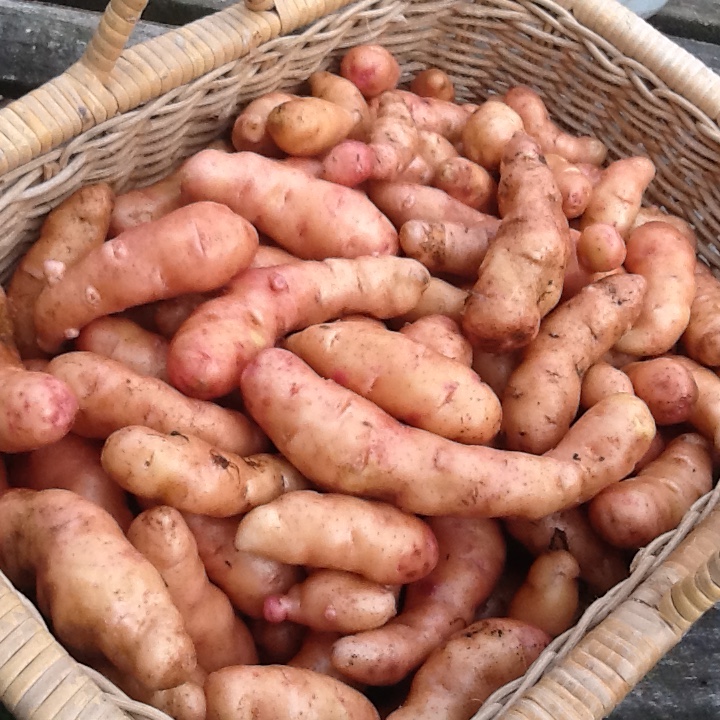
Home-grown potatoes are a treat to eat. Photo: Supplied,
No matter what variety you choose, help them along by loosening the soil; enrich with sheep manure and compost; blood and bone to packet instructions; a sprinkle of lime dolomite mix and remember to water slowly, deeply and regularly.
Potatoes are Solanaceae, as are tomatoes and there are determinate and indeterminate varieties. Indeterminate potatoes produce tubers along the growing stem in multiple layers and must be covered periodically. These do well in grow bags, or pots, regularly covering the plant as it grows.
If growing in the ground they benefit from being “hilled up”. Indeterminate potatoes take 12 to 18 weeks and are late season.
Determinate potatoes grow to a set height and produce their tubers all at one time, at the depth they were planted. As such, they do not need hilling up.
They’re usually less productive than indeterminate types but produce spuds earlier, in about seven to 11 weeks. If you live in a very cold climate, they’re the best choice. Plant determinate seed potatoes 10 cm deep, mulching well.
Bronwyn Richards and Helen Lynch run Wynlen House Artisan Village Farm and Learning Centre, a small village organic market garden in Braidwood, NSW. Since 2006 they have grown and sold fresh vegetables, eggs, preserves and garlic, and teach others to do the same.













